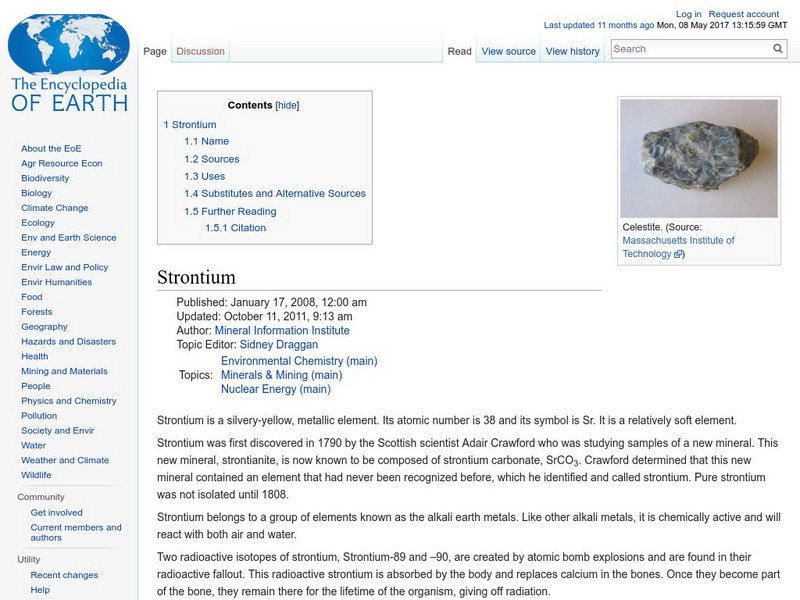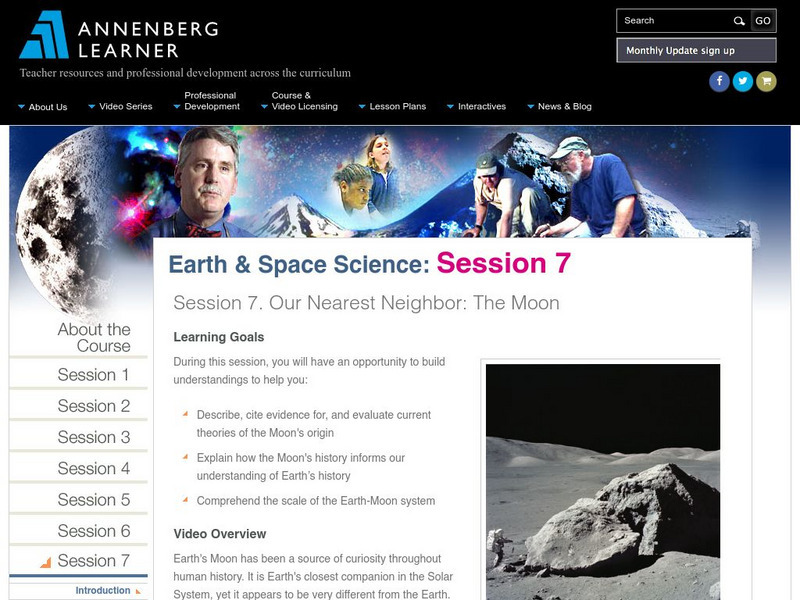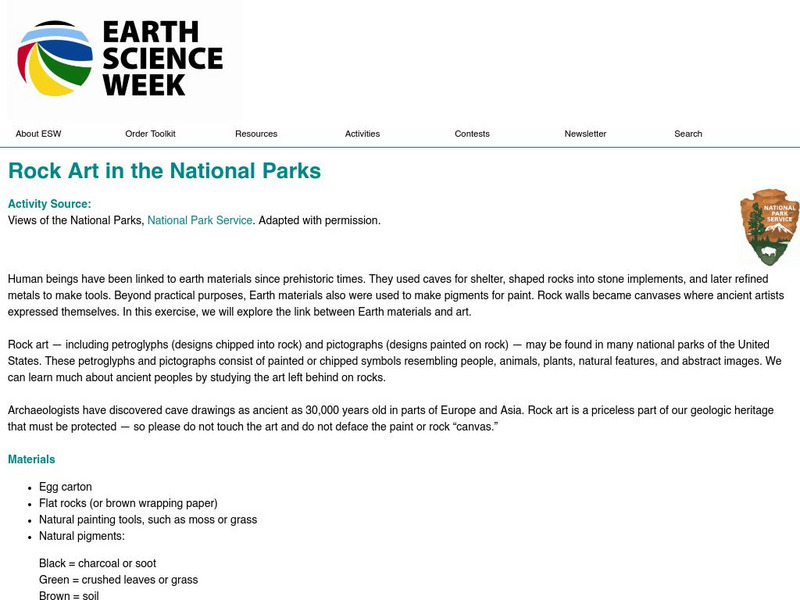Howard Hughes Medical Institute
Hhmi: Bio Interactive: Paleoclimate: A History of Change
Learn about the history of Earth's climate in this Click and Learn. Learn how many factor control Earth's climate. Specifically, examine two of the most important factors: solar radiation and the composition of Earth's atmosphere.
Read Works
Read Works: Passages: "The Rise of Oxygen in the Earth's Atmosphere"
[Free Registration/Login Required] The article "The Rise of Oxygen in the Earth's Atmosphere" from the American Museum of Natural History focuses on when the rise of oxygen in the earth's atmosphere began. A Step Read, a question set,...
Untamed Science
Untamed Science: Biology: Evolution: History of Life: Origins
Learn about the scientific hypotheses of the origin of life on Earth. [5:55]
Howard Hughes Medical Institute
Hhmi: Biointeractive: Earth Viewer
Watch the earth change with this interactive app? What did Earth look like 250 million years ago? Or 1 billion years ago? Or 4.5 billion years ago? What was the climate like in the deep past? Find the answers with EarthViewer, an...
National Library of France
National Library of France: Heaven and Earth
Learn how art through the ages has been influenced by the Earth and the heavens. See paintings that attempted to explain the Earth's creation from a scientific standpoint, sacred architecture that provided a place to worship the heavens,...
Smithsonian Institution
National Museum of Natural History: Paleobiology: Geologic Time: The Oligocene
Travel through Earth's history to learn about the Oligocene time period, which is characterized by the appearance of most of the living families of mammals.
American Museum of Natural History
American Museum of Natural History: What Is Water?
This comprehensive article provides information about the physical properties of water, the importance of water as an Earth material, the processes and cycles that water undergoes on Earth, its importance to life on Earth, and why we...
Smithsonian Institution
National Museum of Natural History: Paleobiology: The Archaean Eon
Journey into the past while reading this comprehensive overview of the Archaean Eon that covers topics such as early continents and oceans, first life on Earth, Earth's atmosphere, fossil evidence, and plate tectonics.
Encyclopedia of Earth
Encyclopedia of Earth: Strontium
Information about the element, Strontium, atomic number 38. Covers its history, sources, physical properties, atomic properties, how abundant it is on the Earth, details about permissible exposure, uses, and possible substitutes.
Other
Radford University: Environmental History Timeline
Worrying over the environment is nothing new, just the term "environmental" is. Investigate the history of concerns dating back to ancient civilization and looking forward into the future.
CK-12 Foundation
Ck 12: Earth Science: Climate Change in Earth History
[Free Registration/Login may be required to access all resource tools.] Traces changes in Earth's climate through Earth history, especially in the past 2,000 years.
CK-12 Foundation
Ck 12: Earth Science: History of Paleozoic Life Study Guide
Use this study guide to understand the history of Paleozoic Life.
CK-12 Foundation
Ck 12: Earth Science: Determining Relative Ages Study Guide
This comprehensive study guide covers the main terms and concepts needed for an earth science unit on determining relative ages. Review questions are included at the bottom of the study guide.
CK-12 Foundation
Ck 12: Earth Science: Determining Relative Ages
[Free Registration/Login may be required to access all resource tools.] Distinguishes how to tell which rock unit is older than the ones around it and so reveal the geologic history of the region.
American Geosciences Institute
American Geosciences Institute: Earth Science Week: Logs of Straw Dendrocronology
Using straws to recreate tree rings, students learn how dendrochronologists work. Construct a 50-year climatic history on a three-meter time line.
Smithsonian Institution
National Museum of Natural History: Ocean Portal: Life at the Poles
The poles of the earth are often grouped together, however, they are very different. This article is a companion to the exhibit at the Smithsonian. You will learn about adaptations that organisms must make and ways that we affect the...
TED Talks
Ted: Ted Ed: Four Ways to Understand the Earth's Age
The Earth is 4.6 billion years old- but how can humans relate to a number so colossal, and where do we fit on the geologic timeline? Joshua Sneideman reminds us of our time and place in the universe. [3:45]
University of Kentucky
University of Kentucky: Earth Science Classroom Activities
A collection of links to activities and lessons that could be used for Earth science concepts including the foil record, creating a timeline of Earth's history, plate tectonics, dinosaurs, and the progression of life on Earth.
Treehut
Suzy's World: Life on Earth
This site from Suzy's World, which is a personal site from Suzy Cato, explores what evolution is, and how long there has been life on earth. Content includes fun facts, a great experiment, and a classroom activity.
Other
What on Earth Is Polka?
"What on Earth is Polka?" offers a brief history of polka music as well as information on its origins, famous composers, and related vocabulary.
CK-12 Foundation
Ck 12: Earth Science: Agriculture and Human Population Growth Study Guide
[Free Registration/Login may be required to access all resource tools.] Summarizes the key points about the evolution of agriculture and how it has impacted human population growth. Includes a few questions to check for understanding.
Annenberg Foundation
Annenberg Learner: Earth and Space Science: Our Nearest Neighbor: The Moon
Material to begin an exploration of the Moon, theories about its origin, and its history's relationship to our Earth's history. An hour-long video is accompanied by learning goals, an outline and overview, details on the Moon's movement,...
American Geosciences Institute
American Geosciences Institute: Earth Science Week: Rock Art in the National Parks
Students learn the importance of protecting pictographs as part of their geologic heritage by making their own paint using natural ingredients to create art.
Annenberg Foundation
Annenberg Learner: Earth and Space Science: Restless Landscapes
Material to begin an exploration of the sand formation, landforms, and underground water. An hour-long video is accompanied by learning goals, an outline and overview, details on the ice ages, glaciers, and glacial landforms, and ideas...
Other popular searches
- Earth History
- Earth's History
- Earth History Activities
- Layers of Earth History
- Earth History Timeline
- Earths Geologic History
- Earth History Soil
- Earth History Review
- Earth History Time Line
- Earths History
- Moon and Earth History
- Ancient Life on Earth














